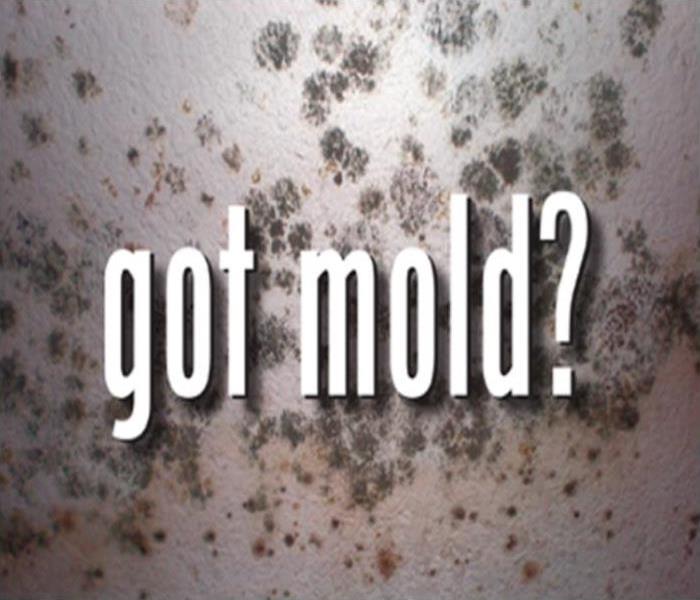What is Mold?
4/12/2017 (Permalink)
What is mold? Mold is a fungus that grows in the form of multicellular filaments called hyphae.. This means that, like you and I, mold is a living organism. Mold spores are microscopic in size and, believe it or not, they exist naturally everywhere. Removing all traces of mold from a home or business is impossible. In actuality, mold testing is not done to determine if mold exists, but rather, to determine if elevated levels of mold exists. Proper mold testing consists of comparing indoor air quality to the air quality of the surrounding external environment.
Three conditions must exist for mold to cultivate. The first would be the availability of food. Any organic, carbon based, porous material is the only source of food mold spores require. The second would be having an appropriate temperature. Contrary to popular belief, mold can grow in any temperature above freezing, for example have you ever found moldy food in your refrigerator? The ideal temperature for mold to grow is in between 59° F – 86° F. Lastly having a considerable amount of moisture is a condition necessary that supports mold. It does not take long either; when all three conditions exist mold infestation can begin in less than 48 hours! The good news is that eliminating any one of these three conditions will ensure be mold free environment.
The not-so-good news is unfortunately, ninety percent of building materials used can serve as food for mold. Temperatures in New England during late spring and summer months are perfect for mold growth. Lastly, leaky roofs, improper bathroom ventilation, or poorly installed finished basements are just a few of the many issues that will cause the increased levels of moisture needed to stimulate mold growth. We cannot change the materials used to build our homes or the temperatures outside but we can control moisture. The good news is as humans we actually prefer humidity levels that are well below the critical relative humidity necessary for mold growth. That means, in most situations, the simple purchase of a dehumidifier is all the protection needed to mitigate mold growth.
But, what happens when disaster strikes and a simple dehumidifier is not enough? Up next – Why Call SERVPRO.





 24/7 Emergency Service
24/7 Emergency Service
